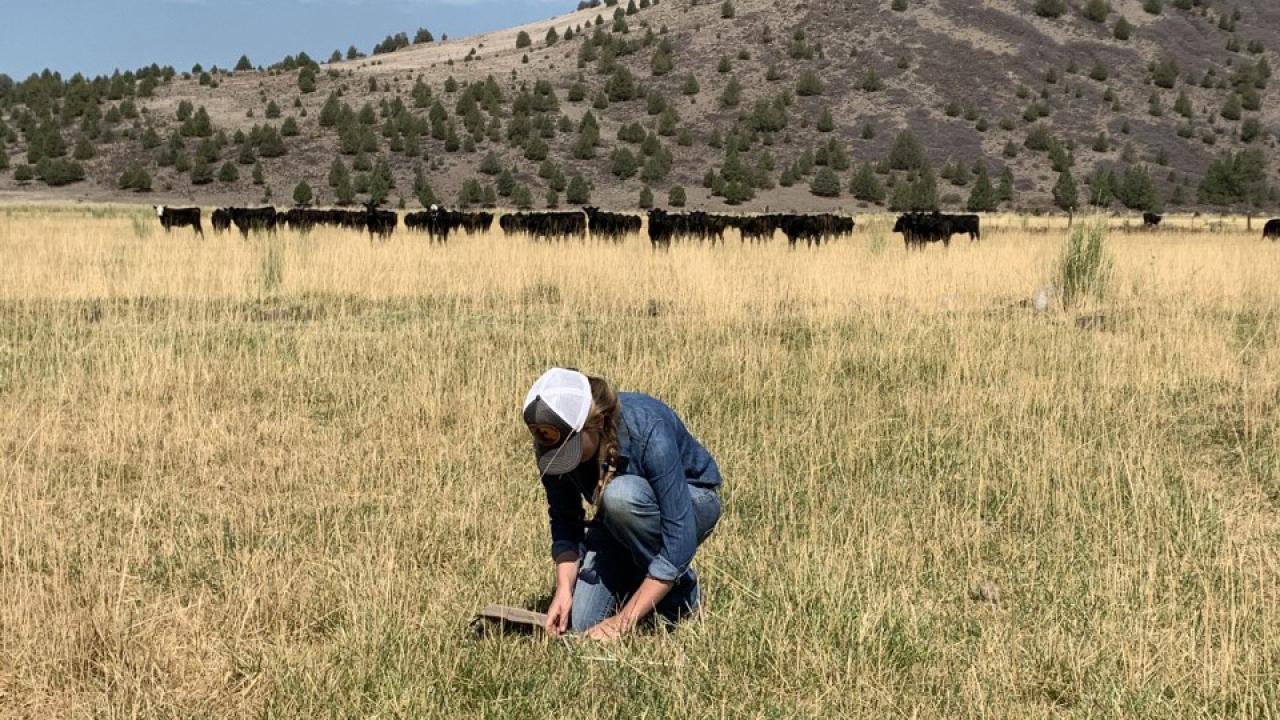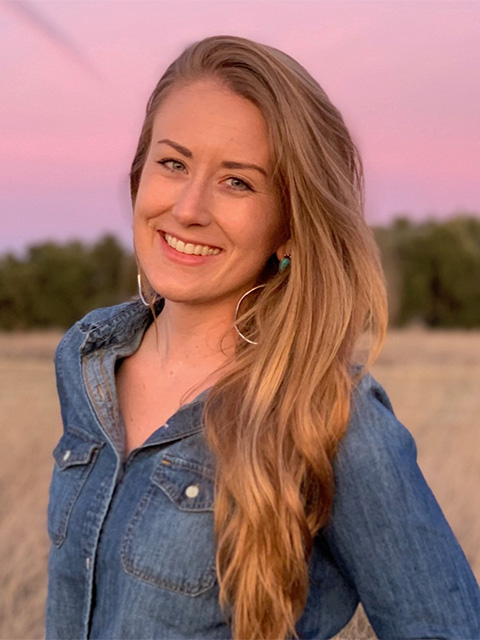
GSR Profile: Grace Woodmansee – UCCE advisor in Siskiyou County
GSR awards are seeds that bear much fruit
Grace Woodmansee is the livestock and natural resources advisor for UC Cooperative Extension in Siskiyou County. She works with ranchers to improve their production and address management challenges using science-based information. As a recipient of a Graduate Student Research award working with in the UC Rangelands lab, she honed her skills in applied research, outreach and science-communication, which prepared her for a career in extension
Q: How did the GSR help you? The GSR award provided critical support for my education. It allowed me to focus on my research while pursuing key extra-curricular experiences that made my education even better. The ability to hone research, outreach and science-communication skills all at the same time prepared me for a challenging, multi-disciplinary career.

Q: How did this training help you secure your current job? I went to graduate school to become qualified for a UCCE advisor position. My experiences as a grad student at UC Davis, including my research training in Leslie Roche’s lab and the Cooperative Extension certificate program, prepared me for my current, multi-disciplinary position.
Q: What was your research during your graduate studies at UC Davis? I was introduced to Cooperative Extension through a summer internship where I observed first-hand how CE advisors address real-life challenges alongside producers. I enjoyed expanding my interests in rangeland management and CE as a research assistant in the UC Rangelands lab at UC Davis, where I completed my master of science degree in agronomy in November 2020.
At UC Davis, my graduate work focused on drought adaptation. I used rancher interviews to determine what management strategies were most effective in managing through historic drought conditions.
Q: What outreach and extension research did you undertake as part of your studies? I was fortunate to work with a great team of extension professionals: Dan Macon (UCCE Placer-Nevada-Sutter-Yuba), Tracy Schohr (UCCE Butte-Plumas-Sierra) and Dr. Leslie Roche (UCCE specialist in rangeland management) on a series of interviews that were conducted at the end of California’s historic drought in 2016. The team conducted semi-structured interviews with 48 rangeland livestock producers to examine on-ranch drought impacts, the use and effectiveness of drought management practices, and the effectiveness of multi-species grazing as a proactive management strategy.
Ranchers were asked about management actions they took to prepare for (proactive practices) and respond to (reactive practices) drought. They were also asked to rank the effectiveness of the practices they used. The most commonly used strategies were based on conserving forage during non-drought years (such as pasture rest and grass banking) and balancing forage supply and demand during drought years (such as buying hay and selling livestock).
One surprising result has been that some of the least-used management strategies were ranked as most effective by the ranchers interviewed. For example, we found that multi-species grazing was the least-used proactive drought management practice, but it was the highest-ranked proactive practice based on perceived effectiveness. We found that multi species grazers also used a greater variety of drought management strategies than single species grazers.
These differences may indicate that multi-species grazers have more flexibility in coping with drought. As extreme, multi-year droughts are predicted to become more common, strategies that were ranked as highly effective by interviewed ranchers managing through California’s historic drought may offer the greatest potential for mitigating future drought impacts.
Seeds that bear much fruit
Thanks to the James Monroe McDonald Endowment, the Department of Plant Sciences has been able to support dozens of our very best graduate students - scientists-in-training such as Grace Woodmansee - with awards that supplement their finances. Graduate Student Research awards provide $20,000 yearly for two years to master's degree students, and for four years to doctoral students.
Like Woodmansee, many go on to careers in UC Cooperative Extension. The McDonald Endowment, administered by UC Agricultural and Natural Resources, provides these funds so that our students can translate research into action, making an impact on California and beyond.
In this series, we highlight a few of our GSR award recipients who have gone on to careers supporting healthy food systems, healthy environments, healthy communities and healthy Californians.
Related links
Apply for a GSR award.
The James Monroe McDonald Endowment, administered by UC ANR, funds our GSR awards.
Media Resources
- Trina Kleist, UC Davis Department of Plant Sciences, tkleist@ucdavis.edu, (530) 754-6148 or (530) 601-6846
